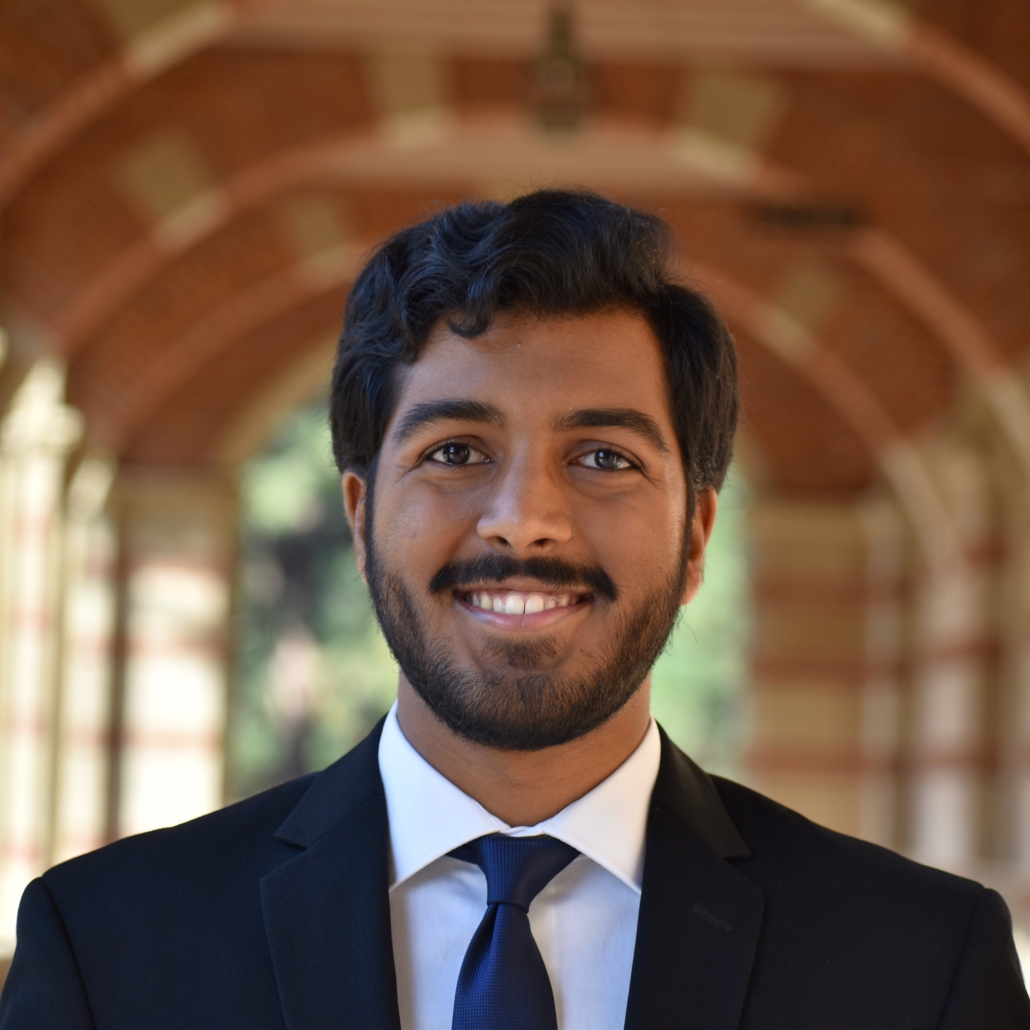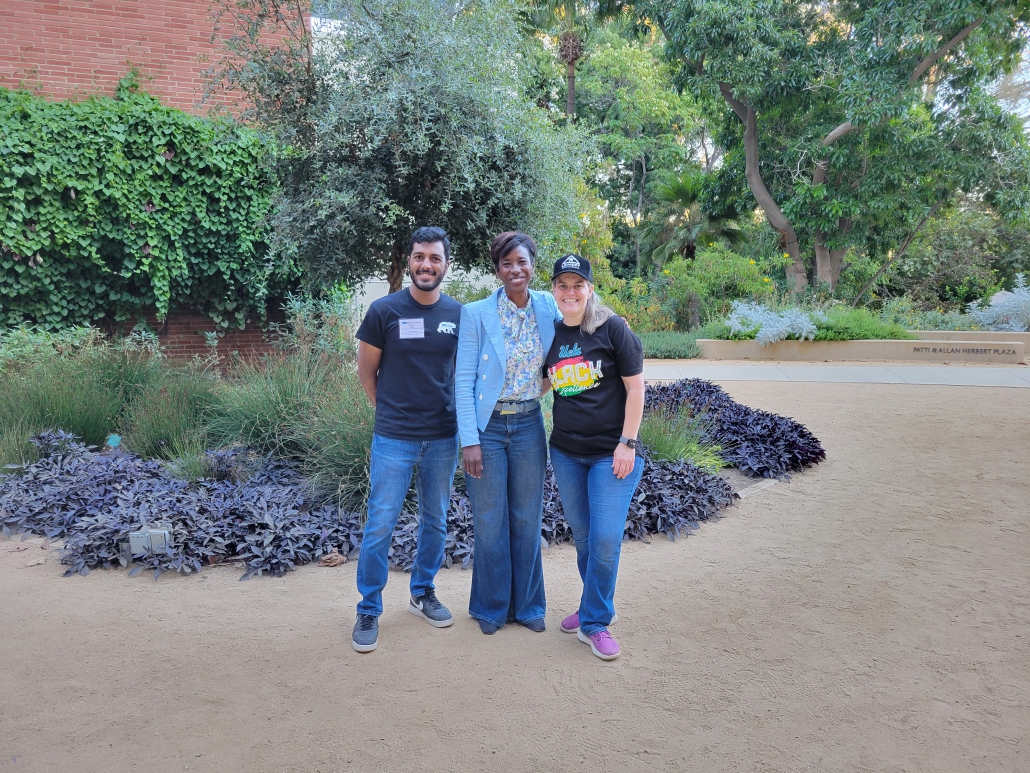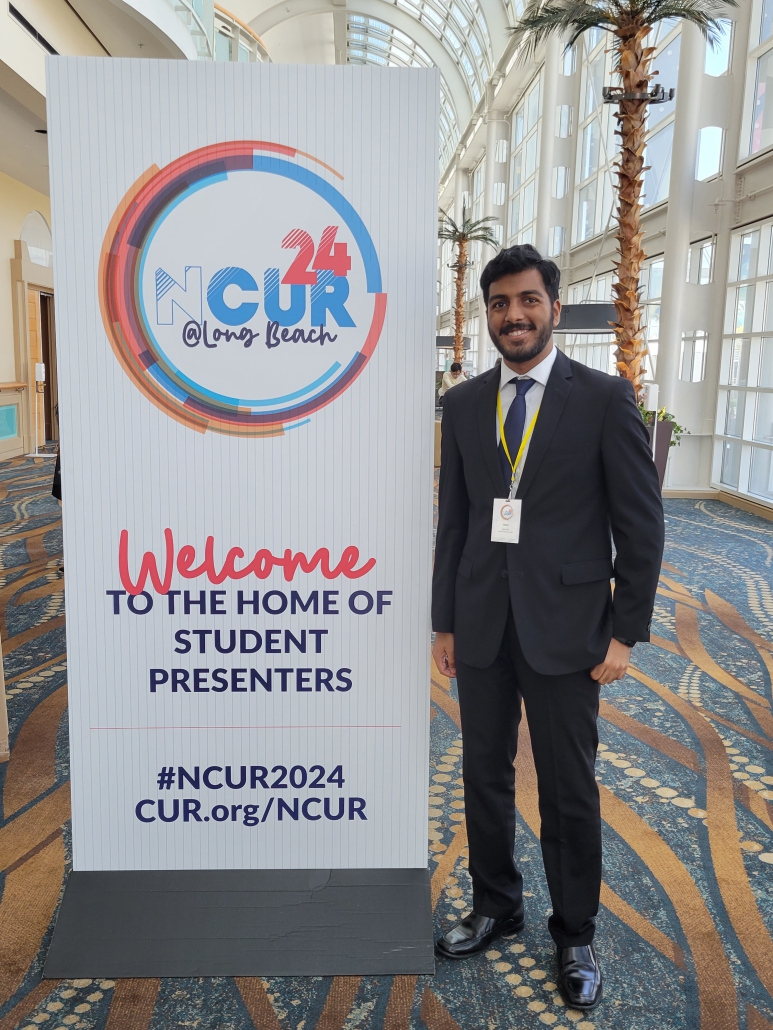‘We wanted every student to feel like they belonged’
By Kayla McCormack | May 15, 2025
For Sohan Talluri, science has always been personal. The San Jose, California, native’s academic path was shaped as much by what happened in doctors’ offices as in classrooms and labs.
Talluri grew up managing severe food allergies, often visiting specialists and hoping for a cure. “I had hopes that whatever they would give me would sort of fix this problem,” he said. “This was not the case.”
While Talluri was diligent about managing his allergies and never experienced a severe reaction, his younger brother landed in the emergency room on several occasions. Seeing his brother suffer through those complications sparked Talluri’s interest in understanding immunology.
“I was looking into labs, and I knew that food allergies and asthma had not only affected me, but my family,” he said. “Getting into research about immunotherapy treatments felt like a natural next step.”
Drawing inspiration from research and the lab environment
He got that opportunity at UCLA, where he took on a major in microbiology, immunology and molecular genetics with a minor in biomedical research. An introductory biology course with professor Yvonne Chen later led to an undergraduate researcher position in Chen’s lab. Talluri spent that first summer in the lab “as much as possible,” learning hands-on research techniques in cancer immunotherapy under the guidance of his graduate student mentors.
“I basically picked up all of my tangible research skills that summer,” Talluri said. “That experience had an undeniable impact on my trajectory.”
After establishing his wet lab skill set, Talluri found purpose in clinical research and public health outreach. Working with Dr. Maria Garcia-Lloret, health sciences clinical professor and director of the allergy/immunology fellowship program in the David Geffen School of Medicine pediatrics department, he contributed to multiple food allergy clinical trials as well as a webinar series that educated over 900 nurses across the Los Angeles Unified School District on food allergies and EpiPen usage.
Then, during the summers of 2023 and 2024, he participated in the National Institutes of Health summer internship program, working in Dr. Naomi Taylor’s lab at the National Cancer Institute to continue his research into cancer immunotherapies.
“These experiences gave me so much perspective — in academia, in clinical research and then the government perspective,” he said. “I heard the NIH described as the Mecca of biomedical research, and walking past some of the top labs in the country — it was incredibly inspiring.”
Creating a community tradition
Mentorship has been a through line in Talluri’s UCLA story — both inside and outside the lab. As a learning assistant and subsequently a teaching assistant for several life sciences core curriculum courses, he helped fellow students navigate classes, research and the broader academic transition to the university.
“It’s about being an ideal guide. Someone who can get the students to see that there are opportunities for success, even if you struggle at first,” he said.
Building community has also been a focus for Talluri. Through the Clinical and Translational Science Institute’s Research Associates Program, he mentored high school students from underserved communities, introducing them to clinical research. He guided them through developing research proposals and later welcomed them to campus as a tour guide for their final culmination day.
“It’s amazing; some of the students have never even heard of clinical research before, and at the end of the program they wrote these incredible proposals,” he said. “That kind of outreach is so important.”
Talluri also found a unique opportunity to build community within the life sciences at UCLA. When he arrived as a first-year student in fall 2021, in-person instruction was just returning after the COVID-19 pandemic. While other divisions held welcome events, the life sciences had none — something he was determined to change.
As internal vice president of the Life Sciences Student Association, he helped organize the division’s first-ever Life Sciences New Student Welcome in fall 2022, and the event has since become an annual tradition.
“We wanted every student to feel like they belonged here,” he said.
For one attendee, a student uncertain about her place in the life sciences, the welcome proved transformative. She later became LSSA president and credited the event with helping her find her closest friends at UCLA.
“You can measure success in numbers,” Talluri said. “But it’s the stories like hers that show the event really worked — and that this community will continue to grow.”
Outside academics, Talluri finds balance through the same curiosity and adventurous spirit that drives his research. A lifelong Eagle Scout, he’s backpacked through Alaska, snorkeled in the coral reefs of the Florida Keys, and explored trails around Southern California.
“I think my experience at UCLA would be a lot dimmer had I not gotten involved in things outside of research,” he said.
His undergraduate years weren’t without challenges. From the Omicron wave his freshman year to a campus-wide teaching assistant strike, protests and nearby wildfires, Talluri’s time at UCLA tested his adaptability and resolve.
“In research, resilience is definitely something I’ll take forward,” he said. “Your cells won’t always grow the way you want, your experiments may not work, but that resilience will carry me through the tough times.”
After his graduation in June, Talluri — who continues to manage his food allergies — plans to return to the National Institutes of Health for a year before attending medical school. Whether it is in the lab, clinic or community, he’s committed to helping others find their path, just as he’s found his.
This article originally appeared in the UCLA Newsroom.





 Courtesy of Russell Lehmann
Courtesy of Russell Lehmann UCLA
UCLA